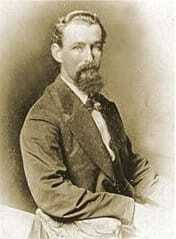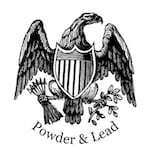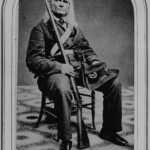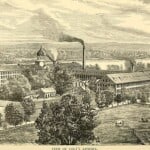
Leander H. McNelly
Leander H. McNelly aka Leander Harvey McNelly (March 12, 1844 - September 4, 1877) was a Confederate officer and Texas Ranger captain, best known for leading the "Special Force" – a quasi-military branch of the Texas Rangers that operated in South Texas during 1875-76. This article delves into the life and career of McNelly, his impact on law enforcement in Texas, and the firearms that he and his men used to maintain law and order in a tumultuous time.
Early Life
Leander H. McNelly was born on March 12, 1844, in Follansbee, Brooke County, Virginia (now West Virginia). His family moved to Missouri in 1855 and then to Texas in 1860, seeking a better climate to improve young McNelly's health as he suffered from consumption (tuberculosis).
Family Life and Health
In Texas, McNelly helped his family raise sheep and regained his health. However, the consumption would later return and play a significant role in his life and career.
Civil War
In September 1861, Leander H. McNelly enlisted in the Confederate States Army, joining Company F of the Fifth Regiment of Texas Mounted Volunteers under General Thomas Green. McNelly fought in campaigns in New Mexico, Galveston, and Louisiana, eventually being promoted to captain of scouts in 1863.
Battle of Valverde and Battle of Galveston
After the Battle of Valverde during the New Mexico campaign, Green named McNelly his aide. Following the fighting in the Battle of Galveston, McNelly was sent to Louisiana, where he led 100 guerrilla scouts and once carried out a spying mission dressed as a woman.
Brashear City, Louisiana and Battle of Mansfield
One of McNelly's most notable exploits during the Civil War took place in Brashear City, Louisiana (now Morgan City). With only 40 men, McNelly tricked 800 Union troops into believing they were facing a much larger Confederate force, resulting in their surrender. McNelly was wounded at the Battle of Mansfield in April 1864 but continued to serve, leading mounted scouts near Hempstead, Texas, to round up deserters until the end of the war.
Post-Civil War and Marriage
Following the war, McNelly moved to Brenham, Texas, where he married Carey Cheek and had two children. He initially settled into the life of a gentleman cotton farmer before working for the General Land Office.
Lawman Career
Texas State Police
On July 1, 1870, Governor Edmund J. Davis organized the Texas State Police force, naming McNelly one of its four captains. During his time with the State Police, McNelly was wounded in Walker County in February 1871 but continued to serve until the force was disbanded in April 1873.
Frontier Battalion and Washington County Volunteers
In July 1874, McNelly was commissioned to head a special force of Texas Rangers called the Washington County Volunteers. Although separate from the Frontier Battalion, the mission of the "Special Force" was the same – to protect the frontier from the depredations of factions both inside and outside the state.
Sutton-Taylor Feud
One of McNelly's first assignments with the Special Force was to deal with the bloody Sutton-Taylor feud in DeWitt County. This ongoing conflict between the Taylor and Sutton families had resulted in numerous killings and continued unrest. McNelly and his men arrived in August 1874 and spent four months attempting to suppress the violence and ensure a fair trial for the accused. They were moderately successful, but the unrest would eventually flare up again after their withdrawal.
The Nueces Strip
The Nueces Strip, a narrow strip of land between the Nueces River and the Rio Grande, was a hotbed of cattle thievery and banditry during McNelly's time. In April 1875, Governor Richard Coke commissioned Captain Leander H. McNelly to organize a Special Force of Texas Rangers to deal with the bloodshed and crime in the area.
Selection of Rangers and Armament
Leander H. McNelly carefully handpicked the forty men for his new Special Force and rode for Nueces County. Merchants and ranchers in South Texas chipped in to outfit the Rangers with single-shot, .50-caliber Sharps rifles – the long arm preferred by many buffalo hunters. Although most Mexican bandits were armed with more modern repeating rifles like the Henry and the Winchester, the Sharps rifle was reliable and deadly accurate at long range. The Rangers were also provided with a wagon load of ammunition.
Mounting the Rangers
In addition to being well-armed, McNelly's Rangers needed well-bred and high-spirited horses to match those of their adversaries. Richard C. King, owner of the famous King Ranch, was losing a lot of stock to rustlers, so he was more than happy to provide the required horses. McNelly himself received the best mount, a tall, wide-chested bay named "Segal."
Intelligence and Tactics
Captain Leander H. McNelly was well aware of the importance of intelligence, often using unconventional methods to obtain information. In one instance, a prisoner captured while riding a stolen saddle was coerced into providing information on a large gang of Mexican bandits herding stolen cattle along the coast toward Mexico. Armed with this intelligence, McNelly and his Rangers pursued and engaged the bandits, eventually recovering the stolen cattle.
Border Incursions and Controversy
The tactics employed by McNelly and his Rangers were effective but often controversial. They were known to cross into Mexico and engage in gun battles with bandits and citizens, violating U.S. policy and Mexican law. This caused tension between political figures in both countries and raised questions about the legality of McNelly's actions.
Firearms
Known for using a variety of weapons, McNelly was a skilled marksman who used firearms such as the Winchester Model 1873 rifle, the Colt Model 1873 Single Action Army revolver, and the Remington Model 1875 revolver to great effect in his work. He was also known to carry a Bowie knife and a sawed-off shotgun. McNelly personal favorite was the .50 Caliber Sharps carbine for which he apparently had a strong preference for over more modern repeating rifles like the Henry or Winchester. Cimarron Firearms created and dedicated a high-quality modern reproduction of McNelly's weapon and named it the Cimarron Sharps McNelly Carbine rifle in his honor.
Final Years and Legacy
By early 1877, McNelly's health had greatly deteriorated due to his tuberculosis, forcing him to resign his command and retire to his farm. He passed away on September 4, 1877, and was buried in Burton, Texas. Despite the controversy surrounding his tactics, Leander H. McNelly and his Special Force of Texas Rangers have been remembered for their significant impact on law enforcement in Texas during a tumultuous time.
Pay your respects here.
Read about him in this epic book here:
If you know of any forums or sites that should be referenced on this listing, please let us know here.





